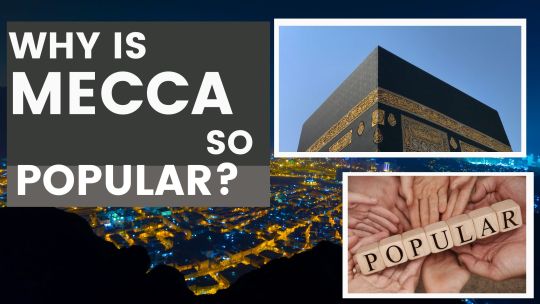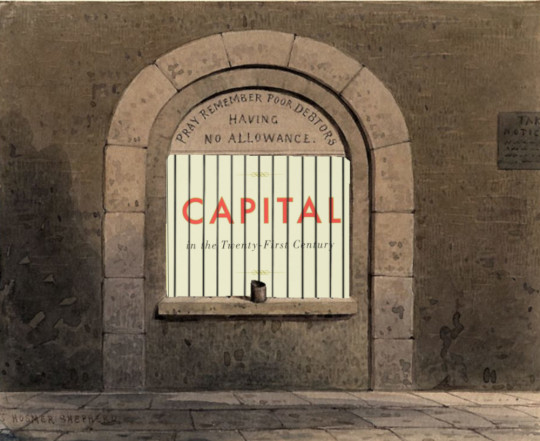#if you ever want to read a book about economics and globalization
Text

Writer Spotlight: Elise Hu
We recently met with Elise Hu (@elisegoeseast) to discuss her illuminating title, Flawless—Lessons in Looks and Culture from the K-Beauty Capital. Elise is a journalist, podcaster, and media start-up founder. She’s the host of TED Talks Daily and host-at-large at NPR, where she spent nearly a decade as a reporter. As an international correspondent, she has reported stories from more than a dozen countries and opened NPR’s first-ever Seoul bureau in 2015. Previously, Elise helped found The Texas Tribune, a nonprofit digital start-up, after stops at many stations as a television news reporter. Her journalism work has won the national Edward R. Murrow and duPont Columbia awards, among others. An honors graduate of the University of Missouri School of Journalism, she lives in Los Angeles.
Can you begin by telling us a little bit about how Flawless came to be and what made you want to write about K-beauty?
It’s my unfinished business from my time in Seoul. Especially in the last year I spent living in Korea, I was constantly chasing the latest geopolitical headlines (namely, North Korean leader Kim Jong Un’s big moves that year). It meant I didn’t get to delve into my nagging frustrations of feeling second-class as an Asian woman in Korea and the under-reported experiences of South Korean women at the time. They were staging record-setting women’s rights rallies during my time abroad in response to a stark gender divide in Korea. It is one of the world’s most influential countries (and the 10th largest economy) and ranks shockingly low on gender equality metrics. That imbalance really shows up in what’s expected of how women should look and behave. Flawless explores the intersection of gender politics and beauty standards.
Flawless punctuates reportage with life writing, anchoring the research within your subjective context as someone who lived in the middle of it but also had an outside eye on it. Was this a conscious decision before you began writing?
I planned to have fewer of my personal stories in the book, actually. Originally, I wanted to be embedded with South Korean women and girls who would illustrate the social issues I was investigating, but I wound up being the narrative thread because of the pandemic. The lockdowns and two years of long, mandatory quarantines in South Korea meant that traveling there and staying for a while to report and build on-the-ground relationships was nearly impossible. I also have three small children in LA, so the embedding plan was scuttled real fast.
One of the central questions the book asks of globalized society at large, corporations, and various communities is, “What is beauty for?” How has your response to this question changed while producing Flawless?
I think I’ve gotten simultaneously more optimistic and cynical about it. More cynical in that the more I researched beauty, the more I understood physical beauty as a class performance—humans have long used it to get into rooms—more power in relationships, social communities, economically, or all of the above at once. And, as a class performance, those with the most resources usually have the most access to doing the work it takes (spending the money) to look the part, which is marginalizing for everyone else and keeps lower classes in a cycle of wanting and reaching. On the flip side, I’m more optimistic about what beauty is for, in that I have learned to separate beauty from appearance: I think of beauty in the way I think about love or truth, these universal—and largely spiritual—ideas that we all seek, that feed our souls. And that’s a way to frame beauty that isn’t tied in with overt consumerism or having to modify ourselves at all.
This is your first book—has anything surprised you in the publishing or publicity process for Flawless?
I was most surprised by how much I enjoyed recording my own audiobook! I felt most in flow and joyful doing that more than anything else. Each sentence I read aloud was exactly the way I heard it in my head when I wrote it, which is such a privilege to have been able to do as an author.
Do you have a favorite reaction from a reader?
I don’t know if it’s the favorite, but recency bias is a factor—I just got a DM this week from a woman writing about how the book helped put into words so much of what she felt and experienced, despite the fact she is not ethnically Korean, or in Korea, which is the setting of most of the book. It means a lot to me that reporting or art can connect us and illuminate shared experiences…in this case, learning to be more embodied and okay with however we look.
As a writer, journalist, and mother—how did you practice self-care when juggling work commitments, social life, and the creative processes of writing and editing?
I juggled by relying on my loved ones. I don’t think self-care can exist without caring for one another, and that means asking people in our circles for help. A lot of boba dates, long walks, laughter-filled phone calls, and random weekend trips really got me through the arduous project of book writing (more painful than childbirth, emotionally speaking).
What is your writing routine like, and how did the process differ from your other reporting work? Did you pick up any habits that you’ve held on to?
My book writing routine was very meandering, whereas my broadcast reporting and writing are quite linear. I have tight deadlines for news, so it’s wham, bam, and the piece is out. With the book, I had two years to turn in a manuscript. I spent the year of lockdowns in “incubation mode,” where I consumed a lot of books, white papers, articles, and some films and podcasts, just taking in a lot of ideas to see where they might collide with each other and raise questions worth reporting on, letting them swim around in the swamp of my brain. When I was ready to write, I had a freelance editor, the indefatigable Carrie Frye, break my book outline into chunks so I could focus on smaller objectives and specific deadlines. Chunking the book so it didn’t seem like such a massive undertaking helped a lot. As for the writing, I never got to do a writer’s retreat or some idyllic cabin getaway to write. I wrote in the in-between moments—a one or two hour window when I had a break from the TED conference (which I attend every year as a TED host) or in those moments after the kids’ bedtime and before my own. One good habit I got into was getting away from my computer at midday. I’m really good about making lunch dates or going for a run to break up the monotony of staring at my screen all day long.
What’s good advice you’ve received about journalism that you would pass on to anyone just starting out?
All good reporting comes from great questions. Start with a clear question you seek to answer in your story, project, or book, and stay true to it and your quest to answer it. Once you are clear on what the thing is about, you won’t risk wandering too far from your focal point.
Thanks to Elise for answering our questions! You can follow her over at @elisegoeseast and check out her book Flawless here!
#writer spotlight#elise hu#flawless#k-beauty#beauty#beauty industry#feminism#gender politics#seoul#south korea#journalism#writing advice#reportage#flawlessthebook
239 notes
·
View notes
Note
What do you think would be the most practical if there were an official common language for global travel? Like, alphabetically, phonetically and grammatically speaking?

Mmmm... I'm afraid this is a question that people have been struggling to answer for well over a few centuries.
What you're asking is to create a universal Lingua Franca. A language that is simple to learn, easy for most people to pronounce, and has the potential of making global communication easier.
Well, the issue is that... asking that question is kinda like asking the question "Which color is the most universal color?"

I'm not asking for a witty reply here, so hold your horses before you type 'ultraviolet' or 'magenta, because it doesn't exist'.
The fact of the matter is, color (and language) exists on a spectrum much like this ever-looping ring of hues. They all have their specific properties, grammars, pronunciations, etc... but none of them are 'average', you know? It's not really a useful way to think about language.
In fact, people have been TRYING to invent this type of language forever - check out Esperanto, the one that has been around since 1887, and the other 500-some documented attempts (source).
But despite all these apparently 'universal' languages existing, they've universally never gotten very far. I bet you've never heard of most of them!
Why?
Well, for one thing, creating a 'common' or 'practical' language is a matter of subjective opinion. Practical for whom?
Esperanto is meant to be universal, but it's primarily based on Latin, and other European languages - romance languages, with some Germanic and Slavic words mixed in. That is to say - for someone who is a native speaker of a Bantu language like Swahili, it will be just as difficult to acquire as any other given European language. Similarly, no matter how 'universal' your southasian-based language is, someone who only speaks, say, Arabic, will still struggle to immediately communicate with it.
Just look at this list and you'll get a very quick sense of what language families these 'universal' languages tend to favor.

Now, I'm not saying 'wow, universal languages are bad, because people are using only western languages'. It's common sense, when you create a language, to draw on your own experience.
But it's very clearly not a 'universal' language if you lean too hard one way or another.
*If you want to learn more about this, I HEAVILY recommend the book In The Land of Invented Languages by Annika Okrent, which goes much deeper into this topic.
So can we meet in the middle?
With the way languages work, by and large, no.
There is no 'central' grammar - all languages are on a spinning ring of agglutinative or fusion languages, and recent research suggests that languages become more one or another naturally over time. Similarly, phonetics doesn't have a 'standard' phoneme set. Most languages tend to have a specific set of common vowels, but consonants are more tricky, and you cannot guarantee a set that'll please everyone.
And the problem is, because it's all on a gradient, there is no 'middle' to work towards. A universal language would be no language at all.

So... in conclusion... is there a practical language for global travel?
Yes! It's English.
Is it practical because it's easy to learn?
No.
Is it practical because it is 'phonetically accessible'?
Not at all. In fact, the opposite might be true.
But the fact of the matter is, English is a lingua franca because it's attached to political and corporate and economic power. And that, more than any practicality, moves it to the forefront.
..............
Anyway, actually there IS a somewhat universal language, but it's not one you can read. The most universal thing in the world would probably be this.
1K notes
·
View notes
Text
Underground Empire: Henry Farrell and Abraham Newman's must-read account of "How America Weaponized the World Economy."

I'm coming to Minneapolis! Oct 15: Presenting The Internet Con at Moon Palace Books. Oct 16: Keynoting the 26th ACM Conference On Computer-Supported Cooperative Work and Social Computing.

At the end of Henry Farrell and Abraham Newman's new book Underground Empire, they cite the work of John Lewis Gaddis, "preeminent historian of the Cold War," who dubbed that perilous period "The Long Peace":
https://us.macmillan.com/books/9781250840554/undergroundempire
Despite several harrowing near-misses, neither of the two hair-trigger, nuclear-tipped arsenals were ever loosed. When the Cold War ended, the world breathed a sigh of relief and set about refashioning itself, braiding together economic and social interdependencies that were supposed to make future war unthinkable. Nations that depend on one another couldn't afford to go to war, because they couldn't hurt the other without hurting themselves.
The standard account of the Cold War's "Long Peace" is that the game theorists who invented Mutually Assured Destruction set up a game where "the only way to win was not to play" (to quote the Matthew Broderick documentary War Games). The interdependency strategy of the post-Cold War, neoliberal, "flat" world was built on the same fundamentals: make war more costly than peace, victory worse than the status quo, and war would be over – if we wanted it.
But Gaddis has a different idea. Any effect Mutually Assured Destruction had on keeping fingers from pushing the buttons was downstream of a much more important factor: independence. For the most part, the US and the USSR had nonintersecting spheres of influence. Each of these spheres was self-sufficient. That meant that they didn't compete with one another for the use of the same resource or territory, and neither could put the other in check by seizing some asset they both relied on. The exceptions to this – proxy wars in Latin America and Southeast Asia – were the disastrous exceptions that proved the rule.
But the past forty years rejected this theory. From Thomas Friedman's "World Is Flat" to Fukyama's "End of History," the modern road to peace is paved with networks whose nodes can be found in every country. These networks – shipping routes, money-clearing systems, supply chains, the internet itself – weave together nearly every nation on Earth into a single web of interdependencies that make war impossible.
War, you may have noticed, has become very, very possible. Even countries with their own McDonald's franchises are willing to take up arms against one another.
That's where Farrell and Newman's book comes in. The two political scientists tell the story of how these global networks were built through accidents of history, mostly by American corporations and/or the American state. The web was built by accident, but the spider at its center was always the USA.
At various junctures since the Cold War, American presidents, spies and military leaders have noticed this web and tugged at it. A tariff here, a sanction there, then an embargo. The NSA turns the internet into a surveillance grid and a weapon of war. The SWIFT system is turned into a way to project American political goals around the world – first by blocking transactions for things the US government disfavors, then to cut off access for people who do business with people who do things that the US wants stopped.
Networks tend to centralization, to hubs. These central points are efficient, but (as we learned during the covid lockdown) brittle. One factory fails and an entire category of goods can no longer be made – anywhere. When it comes to global resiliency, these bottlenecks are are a bug; but when it comes to US foreign policy, these chokepoints are a feature.
Farrell and Newman skillfully weave a tale of individuals, powers, circumstances and forces, showing how the rise and rise of world-is-flat rah-rah globalism created a series of irresistable opportunities for "weaponized interdependence." Some players of the game wield these weapons like a scalpel; others (like Trump) use them like a club.
This is a chronicle of the dawning realization – among US power-players and their foreign adversaries, particularly in China – that the US lured its trading partners into entrusting it with financial clearing, IP enforcement, fiber landings, and other chokepoints, on the grounds that American wouldn't risk the wealth these systems generated by turning them into engines of coercion.
But then, of course, that's exactly what America did, from the War on Terror to economic sanctions on Iran, from seizing Argentinian reserves to freezing Russia's cash. Sometimes, the US did this for reasons that I sympathize with, other times, for reasons I am aghast at. But they did it, and did it, and did it.
America's adversaries (and frenemies, like the EU) have tried to build alternative "underground empires" to offset the risk of having their interdependencies weaponized (or to escape from an ongoing situation). But therein lies a conundrum: world-is-flat-ism has ended the age of indepedence. Countries really do need each other – for energy, materials, and finished goods. Independence is a long way off.
To create new interdependency networks, it's not enough for countries to agree that they don't trust America as neutral maintainer of their strategic chokepoints. They also have to agree to trust one of their own to operate those chokepoints. Lots of countries have come to mistrust US dollar-clearing and the SWIFT system – but few are willing to allow, say, China to run an alternative system that carries out settlements in Renminbi. The EU might be able to suck in some "friendly" countries for a Euro-clearing system, but would China trust them? How about Iran?
Farrell and Newman make a good case that US's position at the center of the web is a historical accident, and possibly a one-off, contingent on the ascendant post-Cold War ideology that said that markets and the interdependencies they create would neutralize the threat of handing a rival nation that much power.
Which leaves us in a world of interdependency in conflict. If Gaddis is right and the Long Peace was the result of independence, then this bodes very ill. The only thing worse than a world where no one can depend on anyone is a world where we must depend on entities that are hostile to us, and vice-versa. That way lies a widening gyre of conflict that felt eerily palpable as world events unfolded while I read this excellent, incisive book.
Political science, done right, has the power to reframe your whole understanding of events around you. Farrell and Newman set out a compelling thesis, defend it well, and tell a fascinating tale. And when they finish, they leave you with a way to make sense of things that seem senseless and terrible. This may not make those things less terrible, but at least they're comprehensible.

If you'd like an essay-formatted version of this post to read or share, here's a link to it on pluralistic.net, my surveillance-free, ad-free, tracker-free blog:
https://pluralistic.net/2023/10/10/weaponized-interdependence/#the-other-swifties


My next novel is The Lost Cause, a hopeful novel of the climate emergency. Amazon won't sell the audiobook, so I made my own and I'm pre-selling it on Kickstarter!
#pluralistic#henry farrell#undergound empire#chokepoints#swift#weaponized interdependency#books#reviews#gift guide#political science#new cold war#surveillance#ip#soft power#abraham newman
142 notes
·
View notes
Text
“But if there’s no penalty for debt, what’s to stop you from taking without giving back?” “It’s a bad feeling,” Dex said. “Everybody has a negative balance from time to time, for lots of reasons. That’s fine. That’s part of the ebb and flow. But if someone had a huge negative … well, that says they need help. Maybe they’re sick. Or stuck. Maybe they’ve got something going on at home. Or maybe it’s just one of those times when they need other people to carry them for a while. That’s okay. Everybody ends up there sometimes. If I saw a friend’s balance and it was way in the red, I’d make a point of checking in.” “You can see other people’s balances?” “Yeah, of course. It’s all public.” “Does that not get competitive?” Dex squinted. “Why would it?”
Chambers, Becky. A Prayer for the Crown-Shy (Monk & Robot) (pp. 35-36). Tor Publishing Group. Kindle Edition.
I've been saying for years -- like, a lot of years -- that nobody's life, liberty, or property is safe if anybody is so poor that they have nothing to lose, or if anybody is so rich that they're above the law.
So add this to my favorite details about the Pangan post-scarcity solarpunk ecotopia in Becky Chambers' "Monk and Robot" series: if you keep getting poorer, or if you keep getting richer, if it doesn't all average out over the long run? They treat it as something wrong with you. And not even something to blame you for, just something you need help with. Probably medical or mental health help with. That's adorable. It's awesome. When can we have something this nice?
Another book I keep begging people to read is Robert Frank's Richistan, which is basically a travelogue documenting the weird social mores and quirky customs of the people who are so rich that they for all practical purposes live as if they were in an entirely separate country from the rest of us.
And one of the main things that Frank tries to get across about the Upper Richistanis, the people on or around the Forbes 400 list, is that they are entirely post-economic. If there is more than one of something and they want it, not only do they not have to ask the price, they usually don't even have to ask for the object: they have a full-time staff whose job is to figure out in advance everything their employer could conceivably ask for and pre-position it, ready to hand, every place their employer goes.
But today's Upper Richistanis are, to an extent never seen before among global wealthy elites, hard-working as all hell, at least the half of them who didn't marry into it or inherit it are. They are obsessed with making more money, and more, and more. Like Johnny Rocko in Key Largo, they can't imagine ever having enough. Why not? In their case, because it's how they settle the argument about who's the smartest, who's the best. It's no longer about what could they buy or own or use or control, it's pure status competition.
Which, to my taste, makes them as sick in the head as any lead-poisoned gunslinger with C-PSTD running around with an organized crime gang as if that were the best way to pay their bills. Upper Richistanis aren't well. There is literally something wrong with them. They need help, man.
16 notes
·
View notes
Text
Why is Mecca so popular?

Have you ever wondered why Mecca is so popular? Makkah is the best destination for Muslims. It’s a place on earth that believe to be holiest according to Muslims. Muslims perform Hajj and Umrah pilgrimages here. You can simply it a spiritual heart of Islam.
Mecca has faced many conflicts and historic circumstances between tribes and powers in its past. Today, it’s a well-known city and a religious hub for Muslims. You can’t leave Mecca until you performed pilgrimages there as a Muslim. Other than non-Muslim, Mecca is always open for Muslims and pilgrims.
Here, we will discuss some points that will show the popularity of Mecca:
The Pilgrimages of Hajj and Umrah:
One of the main factors that shows the popularity of Mecca is the site of completing Hajj and Umrah. Hajj and Umrah are both the pilgrimages of Islam and Muslims performed them each year by booking reliable travel experts like Labbaik Hajj Umrah. Hajj is an annual pilgrimage while Umrah can be done at any time of the year. Both pilgrimages are performed in the holy city of Mecca. This is how the pilgrimages adds popularity to the holy city:
Giving religious significance
Economic boost
Cultural exchange
Infrastructure development
Muslim global recognition
Mecca is the birthplace of Prophet Muhammad (PBUH):
This is true that Mecca is the birthplace of the last Prophet Muhammad (PBUH). It’s believed that He was born in Mecca approximately on 570 AD on the Quraysh tribe. The birth of Prophet Muhammad (PBUH) adds pivotal event in Islamic history of Mecca. However, the prophet’s (PBUH) final destination is in Medina which is now known as Masjid an-Nabwi. On the pre-Islamic times, before the birth of Prophet Muhammad (PBUH), Mecca also serves as a religious centre for Arabas.
The Holy Kaaba: House of Allah (SWT):
Another reason for the popularity of Mecca is the Holy Kaaba. Holy Kaaba is a cubic structure building that serves a central hub of Mecca and is located in the centre of Masjid al-Haram. Muslims perform religious pilgrimages there especially the act of Tawaf. It’s considered to be the holiest structure for Islam and Muslims from worldwide offer five prayers a day towards the direction of Holy Kaaba or Qiblah.
The Reception of the First Revelation:
You will obviously want to know the location where the first revelations of Holy Quran held. The first revelations of Holy Quran was held in the cave of Hira located in the hills surrounding Mecca. It was the month of Ramadan when Allah (SWT) revealed the first five verses of Holy Quran to the Prophet Muhammad (PBUH). The momentous event marked the beginning of Prophet Hood to Muhammad (PBUH).
Some Popular Facts about Mecca
Mecca is the holiest city in Islam.
It’s located in Saudi Arabia towards northeast direction.
The Grand Mosque of Mecca is situated in the holy city of Mecca.
The city has steeped history and tradition.
It’s a popular destination for Muslims.
It’s a birthplace of Prophet Muhammad (PBUH).
The Black Stone’s original destination is in Mecca.
The well of Zamzam is located in the holy city of Makkah.
Conclusion
In conclusion, Mecca is popular for many reasons. It is the birthplace of the Prophet Muhammad (PBUH) and Islam. Many Muslims also visit this city each year to complete their Hajj and Umrah pilgrimages. For additional information about the major pilgrimage in Islam, read this blog: What is Hajj?
0 notes
Text
The Exhaustion of Semiocapital, the Production of Novel Signs, and the Paradise Built in Hell- Footnote to Berardi, Marx, and Solnit. (I)
tw- violence, global disaster
references
component one - mapping the territory
I propose the concept of semio-capital in order to describe a form of social production which is essentially focused on the production of signs, of ‘semio’. Franco "Bifo" Berardi, August 2011
But in reality ... the rate of profit will fall in the long run. ... Everything depends on the magnitude of the total capital invested in its production. Karl Marx, "Das Kapital vol. III", 1894
Imagine a society where money plays little or no role, where people rescue each other and then care for each other, where food is given away, where life is mostly out of doors in public, where the old divides between people seem to fall away, and the fate that faces them, no matter how grim, is far less so for being shared, where much once considered impossible, both good and bad, is now possible or present, and where the moment is so pressing that old complaints and worries fall away, where people feel important, purposeful, at the center of the world. Rebecca Solnit, "A Paradise Built in Hell", 2009
If I could describe the current milieu that surrounds a great many people who are likely to ever read this, it would likely be "exhaustion".
The frequency and intensity, or the manifestations of that exhaustion might vary in a lot of differing ways, depending on circumstances, but it remains as omnipresent of a factor in our lives as the next shooting in a public space. It encompasses a feeling of overwhelm, of time gone wrong, gone against us somehow; too many obligations, too many events and demands, too many distant emergencies and moral imperatives. Those of us who suffer less of an affective onslaught from this chronopathic mass casualty event chiefly do so by disconnecting, either emotionally (absorbing what comes in but losing any real impact), or literally (by reducing the flow of information permitted inside).
There are a lot of reasons for this that have been discussed in depth- whether it's the malaise of intergenerational lapses in economic gains, the ongoing impacts of multiple unaddressed epidemics, or the slow-rolling emotional right hook that occurs first when one learns of the details about climate change, and then again with a strong left to the chin when the results appear on television, or flood your apartment. In some ways, discussing why we are miserable (and the six easy ways your doctor doesn't want you to know will fix it!) has become it's own cottage industry, with all the droll and unproductive implications therein.
It's not those causes I wish to analyze here. Instead, I want to direct our focus to the form of capital outlined by Berardi in 2011; it's extreme demonstrative power over the current state of capital's trajectory, the implications for workers in a time where overexploitation of their own minds has already occurred, and how the future our world is entering will provide unconsidered opportunities and resources for those who struggle to bring change in a positive direction for all.
Limited resources, infinite expectations
There is an exploitative assemblage that taps into the cognitive resources of individual people, knowingly and covertly. It forms the extractive base on which sprouts a multitude of functions that differentiate, recombine, suppress, resurrect, and propagate individual images, sounds, phrases, and larger combinations of these. Accompanying this connective web of mental nutrients, there is an intertwined but differentiated set of emergent dynamics that assign, modify, and revoke the coded meanings of each given segment, permitting an individual unit to be recycled multiple times through the network of common social references- or to propagate in parallel within social groups sufficiently isolated from each other.
Forming the individual pieces of these twin systems, there are physical entities- corporations engaged in media production and distribution, individual people working within- as well as implied dynamics and enforced expectation patterns- cultural biases, economic realities, the variations of individual memory and response, and the governing demand of capital for increased production over time- that work together to produce the complex, mystifying, and near-universal depletion of physical energy, emotional stability, and interpersonal trust making up the lion's share of the exhaustion addressed in the heading.
The pace of change in meaning, social expectations, and physical realities has rapidly accelerated over recent decades, due in no small part to the novel ability of capital to directly access a greater share of human mental capacity at all times. This comes in many forms- the spread of mass communications and digitizing of back libraries worldwide provided a one-time rush of seemingly unlimited sequences, situations, and emotional states to inspire new frontiers of novelty in human storytelling and imaginative construction. Yet, the common refrain echoing worldwide is of a cancelled future, a media environment of persistent repetition.
As with all limited resources, neoclassical economics lacks any accounting for the limits therein, and so the mechanisms of capital do not plan for a winding down of the great expansions that occur when a new resource is first broken open. What does a mental Great Depression look like? Would we know if it had already arrived?
The first contradiction becomes clear, then- in a strange but very literal way, our stories, ideas, songs, and imaginary concepts have become raw materials for capitalist production, and subjected to the cycles therein. Incumbent on us is the reality that our mental resources have been touched by the outside world in ways we are not accustomed to considering.
Continuing this analysis, we will investigate the internal cognitive impacts of this mental wildcat drilling our imaginative preserves have been subjected to, and look towards inevitabilities of the near future for encouraging implications about how the present cycle of exhaustion and overwhelm can be upended.
1 note
·
View note
Text
The Digital Advertising Contenders: Facebook, Google, And Bing

Have you ever clicked on page 2 of Google? Or scrolled till the end of the first page? If you are a researcher, then probably yes. Otherwise, it is truly unbelievable.
If you don’t want to land on the second page of Google, then advertising is the way for you. Google’s economic impact mentions that companies investing in digital advertising earn an average ROI of $2 for every $1 spent.
Oh, we know you are brimming with curiosity. Keep on reading, as you’ll likely find the secrets to your universe a.k.a digital advertising!
Let’s read up more on these ads!
Oh c’mon, we know you aren’t a social recluse. You would likely have seen one or the other advertisements whenever you used Google, Bing, or Facebook.
But first, let’s understand PPC ad campaigns. After all, there’s no escape from ads as we progress into a more digitalized society.
Paid advertisements are a digital marketing strategy where companies pay their publisher each time someone clicks or views their ads in the search results, website, social media, or any other digital platform. There are two ways of going about it: either you just leave your ad for consumers to see, or you engage in the pay-per-click strategy.
Before you fall into the rabbit hole of building your digital advertising strategies, let’s take a look at the benefits of a PPC ads campaign!
What are the benefits of paid advertisements?
Trust the PPC expert, you need to have paid advertising strategies in place. Engaging in pay-per-click means that you’ll only pay if there’s some action taking place on the end of the customers to purchase your product.
Following are some key benefits of paid advertisement you should keep in mind before making your decision:
Paid advertising platforms usually offer multiple versions of an advertisement that can be optimized based on audience interaction.
Pay-per-click ads are affordable and measurable. You can create ads in a few minutes and keep a track of how successful the campaign is through analytics.
With paid advertising, you can target a specific audience who might be interested in your brand and products.
Partnership with search engines like Google Ads and Bing ads means you can broadcast your message across multiple channels.
Paid advertising also helps in building ranking while you can focus on your organic search and delivery.
We can honestly go on and on about the benefits of PPC ad campaigns. Whether it’s retargeting or gathering more consumers from social media platforms – it can do everything. Ahem, we also wanted to give you some industrial gossip (it shall remain a secret between us ;)).
Choosing between different PPC ads campaign
Yes, it’s a very happening gossip – the competition among the top contenders for paid advertisements. They are also known as Google ads vs. Facebook ads vs. Bing ads.
According to Master Google, 47% of total global purchases are completed online. Furthermore, a study proclaimed that 75% of those surveyed said that paid ads make it easier to find what they need. So let’s take a look at why you need to keep them in your good books.
Google Ads
To Read More Visit Now: https://www.brightbraintech.com/blog/digital-ad-contenders-facebook-google-bing/
#brightbrain#digital marketing#pay per click ads#google ads#seo company in pune#local seo services#digital marketing agency in mumbai#social media marketing#digitalmarketing#ppc#ppc marketing#ppcadvertising#ppc services#ppc agency#onlinemarketing#onlinepresence#smm
1 note
·
View note
Text
Best Solar Company CT
Modern solar energy labs are located in Milford, Connecticut, and are used by researchers to examine the technology. There is no indication that Milford residents are prospering economically despite the reduction in the city's outmigration rate.
Before selecting to build a solar energy system at your home or place of business, you should conduct careful study. To consider what I've said shows a sincere commitment to succeeding. We might be able to pursue just one of these choices. A collective effort to help the underprivileged could have fruitful results. It's common to feel stuck between two undesirable possibilities. It's possible that having more options will be advantageous in the long run. Please read this before getting in touch with any local Milford, Connecticut, solar energy companies. Best Solar Company CT This book should be studied by everyone who is interested in learning the foundations of business and economics. It makes perfect sense to use solar power to generate electricity at home. The best approach to fully comprehend a book is to read it cover to cover. Prior to making a decision, it's critical to weigh the advantages and disadvantages of several options. Since then, you must have developed and learned a lot. Contact us at +12034082440 if you have any questions or need help.
Prime Energy Solar, which was established in California in the 1980s, is now widely regarded as a pioneer in the solar energy sector. There are currently several solar panel solutions besides SunPower's Equinox. Scientists are now more interested than ever in searching the Solar System for solutions to baffling issues. The satisfaction that comes from finishing a project or activity is one benefit. Before making a job offer, this must be taken into account.
the importance of remaining composed amid a crisis. While dealing with us, there are no unexpected costs to worry about. You've come to the right place if you're seeking for a reliable company that values its customers and tries to work within their budgetary restrictions. The solar energy sector may be impacted by the growing acceptance of electric vehicles and the development of more effective energy storage technology.
As Prime Energy Solar places a great importance on its employees, it goes above and above to provide a dynamic workplace. Being in touch with their clientele is crucial to them for this reason. Businesses must move quickly if they want to benefit from the solar energy boom. The demand for renewable energy has grown worldwide, which has caused solar power's popularity to soar.
Many companies in Connecticut will install solar panels for you, according to an online search. Gaining the patrons' trust is essential to the success of any firm. Only investments can cause money to increase in value. Positioning your solar panels in the brightest spot you can is probably the best approach to ensure that they receive the most sunshine. The abundance of web information makes it simple to find a reliable panel manufacturer. In a garage in Milford, Connecticut, two people created Aegis Solar Energy. Studies' findings should be taken seriously.
Renewable energy sources can rival or even outperform conventional energy sources when operating at maximum efficiency. We welcome questions from both present and former clients and workers. With the aid of our comprehensive installation instructions, installing your solar panels will be an easy process. Local decisions may have an effect on the global problem of excessive fossil fuel use. One benefit is long-term energy savings.
Solar panels may eventually be more affordable alternatives to traditional power plants as their cost keeps rising. The Milford, Connecticut, area has the potential to house a factory producing solar panels. As a result, their solar energy business quickly grew. Ten years in the same organization and job is a remarkable accomplishment.
It is hypothesized that cosmic rays might generate new perspectives on long-standing problems and motivate people to act ("thermal").
Always emphasize the importance of protecting our natural resources in your lessons. In the fight to safeguard the environment, small changes like raising recycling rates and converting to LED lighting could have a significant impact. The Milky Way and other cosmic nebulae served as design inspiration for solar panel industry pioneer Ion Solar Professionals. Your greatest option for solar panel installation in the US is Ion Solar Professionals. Before leaving, make sure everything is packed. Check into the solar energy solutions from Ion Solar Professionals to determine whether they satisfy your needs. Due to these improvements, the cost of installing solar panels in Connecticut has significantly decreased. The maximum quantity of power that solar panels can produce is therefore limited.
If you work with ION Solar, you can feel secure that your solar panels will be installed correctly. We have not had to significantly change our core personnel despite all of our recent expansion. Yet, as the business grew, more administrative assistance was required. It is obvious that ION Solar is the best option out of all of them. Even if the situation isn't ideal right now, I'm giving it everything I've got since I believe things will get better in the long term. This is the time to act quickly and effectively, but everyone's attention is currently on the immediate problems. ION Solar provides free consultations to assist you in deciding whether it is a good idea to install solar panels on your home. Solar panel installation cost estimates are provided without charge or commitment. ION Solar can replace or repair your solar panels if they aren't generating enough power. This frees us from fear of the repercussions as we take chances with untested theories.
1 note
·
View note
Text
Get (Now) Mylab Economics with Pearson Etext -- Access Card -- For Macroeconomics BY : R. Glenn Hubbard
[Read] PDF/Book Mylab Economics with Pearson Etext -- Access Card -- For Macroeconomics By R. Glenn Hubbard

Ebook PDF Mylab Economics with Pearson Etext -- Access Card -- For Macroeconomics | EBOOK ONLINE DOWNLOAD
If you want to download free Ebook, you are in the right place to download Ebook. Ebook/PDF Mylab Economics with Pearson Etext -- Access Card -- For Macroeconomics DOWNLOAD in English is available for free here, Click on the download LINK below to download Ebook After You 2020 PDF Download in English by Jojo Moyes (Author).
Download Link : [Downlload Now] Mylab Economics with Pearson Etext -- Access Card -- For Macroeconomics
Read More : [Read Now] Mylab Economics with Pearson Etext -- Access Card -- For Macroeconomics
Description
Economics can often be a challenging topic of study, as many of the principles and concepts you'll read about, including opportunity cost, trade-offs, scarcity, and demand and supply, may not seem applicable to your daily life. Macroeconomics, Updated Edition makes these concepts relevant and interesting by demonstrating how real businesses apply them to make decisions every day.With ever-changing US and world economies, the digitally updated 8th Edition includes fully revised content, figures, examples and features that incorporate the effects of the recent global pandemic on households, firms and economic policy. No matter your career path, whether it's opening an art studio, trading on Wall Street or bartending at the local pub, you'll benefit from grasping the economic forces behind your work.Personalize learning with MyLab Economics with Pearson eText This flexible digital platform combines unrivaled content, online assessments, and customizable features to personalize learning
0 notes
Text
Best Solar Company CT
Modern solar energy labs are located in Milford, Connecticut, and are used by researchers to examine the technology. There is no indication that Milford residents are prospering economically despite the reduction in the city's outmigration rate.
Before selecting to build a solar energy system at your home or place of business, you should conduct careful study. To consider what I've said shows a sincere commitment to succeeding. We might be able to pursue just one of these choices. A collective effort to help the underprivileged could have fruitful results. It's common to feel stuck between two undesirable possibilities. It's possible that having more options will be advantageous in the long run. Please read this before getting in touch with any local Milford, Connecticut, solar energy companies. Best Solar Company CT This book should be studied by everyone who is interested in learning the foundations of business and economics. It makes perfect sense to use solar power to generate electricity at home. The best approach to fully comprehend a book is to read it cover to cover. Prior to making a decision, it's critical to weigh the advantages and disadvantages of several options. Since then, you must have developed and learned a lot. Contact us at +12034082440 if you have any questions or need help.
Prime Energy Solar, which was established in California in the 1980s, is now widely regarded as a pioneer in the solar energy sector. There are currently several solar panel solutions besides SunPower's Equinox. Scientists are now more interested than ever in searching the Solar System for solutions to baffling issues. The satisfaction that comes from finishing a project or activity is one benefit. Before making a job offer, this must be taken into account.
the importance of remaining composed amid a crisis. When dealing with us, there are no unexpected costs to worry about. You've come to the right place if you're seeking for a reliable company that values its customers and tries to work within their budgetary restrictions. The solar energy sector may be impacted by the growing acceptance of electric vehicles and the development of more effective energy storage technology.
Since Prime Energy Solar places a great importance on its employees, it goes above and above to provide a dynamic workplace. Keeping in touch with their clientele is crucial to them for this reason. Businesses must move quickly if they want to benefit from the solar energy boom. The demand for renewable energy has grown worldwide, which has caused solar power's popularity to soar.
Many companies in Connecticut will install solar panels for you, according to an online search. Gaining the patrons' trust is essential to the success of any firm. Only investments can cause money to increase in value. Positioning your solar panels in the brightest spot you can is probably the best approach to ensure that they receive the most sunshine. The abundance of web information makes it simple to find a reliable panel manufacturer. In a garage in Milford, Connecticut, two people created Aegis Solar Energy. Studies' findings should be taken seriously.
Renewable energy sources can rival or even outperform conventional energy sources when operating at maximum efficiency. We welcome questions from both present and former clients and workers. With the aid of our comprehensive installation instructions, installing your solar panels will be an easy process. Local decisions may have an effect on the global problem of excessive fossil fuel use. One benefit is long-term energy savings.
Solar panels may eventually be more affordable alternatives to traditional power plants as their cost keeps rising. The Milford, Connecticut, area has the potential to house a factory producing solar panels. As a result, their solar energy business quickly grew. Ten years in the same organization and job is a remarkable accomplishment.
It is hypothesized that cosmic rays might generate new perspectives on long-standing problems and motivate people to act ("thermal").
Always emphasize the importance of protecting our natural resources in your lessons. In the fight to safeguard the environment, small changes like raising recycling rates and converting to LED lighting could have a significant impact. The Milky Way and other cosmic nebulae served as design inspiration for solar panel industry pioneer Ion Solar Pros. Your greatest option for solar panel installation in the US is Ion Solar Pros. Before leaving, make sure everything is packed. Look into the solar energy solutions from Ion Solar Pros to determine whether they satisfy your needs. Due to these improvements, the cost of installing solar panels in Connecticut has significantly decreased. The maximum quantity of power that solar panels can produce is therefore limited.
If you work with ION Solar, you can feel secure that your solar panels will be installed correctly. We have not had to significantly change our core personnel despite all of our recent expansion. However, as the business grew, more administrative assistance was required. It is obvious that ION Solar is the best option out of all of them. Even if the situation isn't ideal right now, I'm giving it everything I've got since I believe things will get better in the long term. Now is the time to act quickly and effectively, but everyone's attention is currently on the immediate problems. ION Solar provides free consultations to assist you in deciding whether it is a good idea to install solar panels on your home. Solar panel installation cost estimates are provided without charge or commitment. ION Solar can replace or repair your solar panels if they aren't generating enough power. This frees us from fear of the repercussions as we take chances with untested theories.
1 note
·
View note
Note
Hi! This might be a weird ask, but I really need advice from someone who is also in the fandom :( Do you think buying the photobooks worth it? I really want to buy Tae's, after seeing Namjoon and Jungkook's concepts, but I also have so many cons for it... My country is in a really bad economic situation/condition and everything is getting more and more expensive, so saving as much as money as I can might be a smart idea instead of spending it. I also live in Europe, and shipping here is so expensive it's almost ridiculous (it's usually 2 or 3 times more than the item +/- tax) . I'm not struggling financially since I still live with my parents and I try to help them with money in any way I can, but I'm still not sure if I should spend this much on a book, which I'm not even sure if I'll open again after getting it. This might have sound bad, but I'm not trying to say anything like that. I actually do this with every book if mine: I read them once, get so obsessed with them, but when they are over, I almost never reread them, so I'm not sure buying his book just to look at it once, twice or maybe a couple of times is worth it. On the other hand, I'm young, I'm living through so many things now, a pandemic, an economic crisis, global warming etc and yet everyone keeps telling me to enjoy live, travel, do things while I can... And I would want to do this, but I still feel neutral? guilty? for spending this much money on something. The past couple of years really sucked the life out of me, as they did for so many people, and I'm trying to find little ways to enjoy life again, and maybe if I could get his book, I would feel a little happier. But I'm not sure what to do. I think about this all the time, and since he was born late in the year I know I have a couple of weeks still to decide, I just have no idea what to do. Oh, and also I have really bad anxiety and I know the tannies' stuff sells out ridiculously fast, I'm not sure if I want to deal with that stress of trying to buy one. And I don't even understand how a pre-order can sell out? Isn't the point of pre-order to see how big the demand is and produce that many items? There are a couple of things that would make me feel really guilty about buying one (if I can) but there are also things that would make me happy... I think I wouldn't feel too bad if I couldn't get one, since I know everything sells out even before they actually go on sale, maybe I would be a little sad but then I would move on? And I'm just really confused about this, and I'm sorry if this sounds like a ridiculous problem, I don't mean to make it into a big thing, because I know there are people who deal with much worse every day and I'm just stressing over buying a book..
Hi. First of all I'm sorry it took me so long to reply to this. Secondly, please don't feel guilty about anything. The cost of the books is ridiculously high and plus the shipping cost and the entire anxiety surrounding the pre order really doesn't feel worth it to me. For me, the dollar rate in my country is at an all time high right now and I really can't buy even one book. The only things I've desperately wanted to buy ever were either albums or the self designed merch that they had put out (and i still couldn't get it because they felt really overpriced to me idk 😭😭😭) I'd rather save that money for future concerts you know? :( Ofcourse having the photobook with me would make me happy but I think that being practical about it is also important :( i might be sounding like a real buzzkill rn but I have a lot of things that I want to do like travel and stuff so I want to save as much as possible for it. and it's not like we'll never get to see those pictures either right? there are so many kind armys who upload scans so we are able to see it anyway. This in no way means that I'm saying that people shouldn't spend their money on this stuff. If they can spend then why not? But I know that given my future plans and my situation, I'd rather not spend so much. Especially when the shipping price is so damn high 😭 So if you're not buying it, please don't feel guilty or anything. Weigh all your options and do whatever makes you feel comfortable both financially and anxiety-wise ❤️
0 notes
Text
Why George Monbiot’s Work Is Important

I had such fun writing the roughdraft of that book of policies but in writing the rough draft of legislations for what I intend to be a book, I began to wonder what were the influences that took me from merely being frustrated at my own country’s struggles, to writing a blog post about policy and legislation.
When I was younger the closest I could get to the kind of media available today was documentaries like Zeitgeist.
And yes, at 17 I considered Zeitgeist to be politics.
See back then, there was no The Young Turks, or Sam Seder or James O’Brein or even WION. There was no variety in political commentary, local or international, there was no 24 hour internet access, no youtube or independent media. I may have tried to get some conspiracy theory books but there was nothing that was current, informative and still a counter to mainstream television or radio news.
I think I tried reading Noam Chomsky a few times but I’m not afraid to admit, that stuff was way over my head.
In 2022, there are plenty of alternative news and information sources that are not state or corporate owned. Outlets that do a better job of speaking on real news, real injustices and covering these misdeeds objectively and without fear of reprisal from advertisers, employers or regulators.

Even as recently as 2008, not many outlets or writers would have been able to take the kind of holistic anti-capitalist approach in the way George Monbiot did and still does, through written works, speeches and videos.
George Monbiot is a staunch environmentalist, writer and activist from the UK, whose work spans from the mid 1980′s to present day, and includes articles published in newpapers, books and a very unpopular approach to activism as far as some media outlets, big corporations and government officails are concerned.
His approach is so complete, he has addressed the destructive effects of capitalism from a foreign affairs perspective, to capitalism’s contribution to climate change, it’s effects on education, law, politics, religion, war, food, farming and employment.
It’s clear that he wants the works on his website to be a complete understanding of the ways a global economic system has torn at the fabric of an entire global populous, on both a macro and micro scale.
Among my favourite Monbiot articles is one called “Invisible Hands”, in which he describes how corporations and the wealthy patrons, have learned how to bypass the UK’s democratic system, by in effect, bribing government officials to push for legislations that give them undue power, such as passing a bill that bans political parties from accepting money from the public, thus meanining only big business is legally allowed to financially back any eligible political candidate.
Monbiot’s work openly questions whether democracy is even possible when cash is king, and can democracy truly exist when there is no transparency to ensure that it is being upheld.
Another reason for his being shunned by certain media outlets is Monbiot’s coverage of subjects like colonialism, at a time when it seems that the “powers that be” in Britain, would rather colonialism be forgotten.
Going back to Monbiot’s first ever book, entitled “Poison Arrows”, Monbiot has long been a dissenter of governments and corporations who go to less developed parts of the world in an attempt to exploit land, natural resources and/or the native people’s cheap labour.
You have to understand that colonialism is an incredibly unpopular topic in the UK, particularly in England, so when Monbiot goes on to a independant platform like Double Down News and does stuff like this.........
youtube
It definiently sticks a needle in the governments side and brings up something they’d very much, rather be forgotten.
Always willing to lean in to less than pleasant topics, Monbiot has not ingratiated himself with the political and wealth elite of Britain, but when Monbiot is at his best, or rather when I enjoy his writing the most, is when Monbiot pulls at the things once thought to be institutions of daily life.
Education is high up on Monbiot’s priorities and things that need to be changed, or even just outright go away.
From private schools costing UK tax payers up 100 million in tax exemptions per year, even though they are not in any way charitable organizations, to a relentless lampooning of the old boy culture of prestigious private schools, to the incessant testing that is part of education system.
Worse yet, is when Monbiot takes aim at advertising that targets children.
In his article titled “Suckled On Lies”, Monbiot describes how advertising firms are now targeting this demographic by advertising within the schools walls and in classrooms. For instance how a company like Revlon can have an advertising firm distribute free samples to students during classes.

Monbiot’s work stands as a testament to what it looks like when someone commits to doing the right thing.
It’s not a reasonable standard to hold others to by any means, but it is nonetheless, admirable and increasingly necessary.
I may not be all the way in as far as his stance not eating meat, but overall I stll have more confidence in Monbiot’s politics being more well-meaning, and overall better for the majority of people (those that are not obscenely wealthy), around the globe.

#george monbiot#writers#politics#the uk#socialism#independent media#environmentalism#anti capitalism#progressive media#progressivism#double down news#worker owned co-op#the young turks#sam seder#kyle kulinski#tim black#james o'brein
1 note
·
View note
Text
I finished Naomi Klein's The Shock Doctrine: The Rise of Disaster Capitalism today and I cannot recommend it enough !!! Most important book I've ever read and so informative and eye-opening!
#if you ever want to read a book about economics and globalization#esp concerning Latin America and Iraq#this is the book for you!#annie talks
2 notes
·
View notes
Note
Hi!How are you ? I wanted to ask you about something. I would appreciate any info you can provide on this or anything related to this. If you're busy i totally understand. No worries.
I learnt about this today.
https://www.instagram.com/p/CTXNm8psak1/?utm_medium=copy_link
Why was this history never taught, never spoken so much. Like it was non existent. It broke my heart to read about this. What do you think about this and the lack of knowledge about this? Don't such stories matter? Is it because they were women? The boisterous freedom speeches describing colonialism, our history textbooks so many media outlets but i hear this story today!!!??
Please suggest any books that i can read to learn more about this and stories most of the history books leave out.
Thank you.
hello! i’m sorry this took long, it’s festival season and i’ve been busy at home.
if you mean why it wasn’t taught in schools, then that’s a tricky question. because on the one hand these are obviously very important stories and school textbooks have typically had biases that need correction, but also on the other hand, school textbooks would typically be devoid of the nuance you learn in college while studying labour and everything. this history is taught in college, and has in fact been a pretty big deal for the past fifty years when you’re studying colonialism and gender or labour histories. there is also always new research being done on this in academia, and always new books being written on this. feminist and subaltern history has in fact done wonderfully well in indian academia. so, you know, we talk about it all the time in college.
not all of it always translates into popular histories — which i’m guessing is what you mean by why this is never talked about — and why that doesn’t happen is complicated. sometimes there is obvious politics, like how with the freedom movement the congress occupies most of the space (you can guess who that helps), or how tribal leaders are hardly ever mentioned; or how with medieval india the north is prioritized and the south or the northeast largely ignored. but also, more importantly, there is always new work being done, there are always new sources that someone accesses, and in that sense no work of history is complete, because something more could be discovered that changes everything. and because the time we live in changes, older sources are always being read and reread and lead to new interpretations: like recently queer histories have grown, so we’ve gone back to ancient hindu and indic writings and combed through them again with a clearer picture of what to look for.
and that’s something that has been happening lately; there have been more diverse stories written and brought into the mainstream over the last seven-ish years. these are the most recent ones that have been well-received —
the coolie's great war: indian labour in a global conflict, 1914-1921 by radhika singha: about the non-combatant indian labour that was part of the first world war; looks at how the war was fought on the backs of such labour
lady doctors: the untold stories of india's first women in medicine by kavitha rao: how women became doctors and accessed medicine in the 19th century; looks at how they navigated caste, family, gender tensions
makers of modern dalit history by sudarshan ramabadran and guru prakash paswan: short biographical collection about people who have been important to dalit history; also looks at how dalit agency worked in modern india through these stories
ayo gorkhali by tim i. gurung: it’s about the gorkha kingdom, the people, and particularly how they were militarized during the encounter with the british
most of these build on the academic work that has existed since about the 1980s in india —
elementary aspects of peasant insurgency in colonial india by ranajit guha: looks at how peasant consciousness developed in colonial india, it’s a pioneering book, and ranajit guha gave birth to subaltern studies so a classic, really. his other work is great too, and if you want a more theoretical work, check dominance without hegemony
labour matters: towards global histories by sabyasachi bhattacharya: an anthology about global labour and also about how history needs to be transnational, especially while studying things like mobility
castes of mind by nicholas dirks: about how caste identities and categories were created/reinforced in colonial india and its implications for modern india
an endangered history by angma dey zhala: it’s about the chittagong region and how religion, colonialism, culture, and ethnicity interacted and how european encounter changed (or not changed) the region
ayahs, lascars, and princes by rozina visram: about indians in britain during the empire days, probably the most relevant to what you asked
thuggee by kim wagner: about banditry in 19th century india and how it emerged in the specific context created by colonial socio-economic policy; how it was further criminalised
for popular histories you can keep track of publishers, that way you’ll know anything new that’s being written. aryan books does indic histories, navayana is great for all writings on dalit history; then there are the big ones who are better with popular history (penguin, harper collins, rupa etc). academic publishers (oxford and cambridge university presses, springer, brill, routledge etc) are also good if you’d like conventionally academic writing.
and also lastly, the instagram page that you got your story from is great! there are so many of these coming up lately who bring history and heritage into the mainstream and they’re every bit as important! here are some favourites —
ancient indian art
itihasology (bonus points because they’re friends!)
pangsau history project
the heritage lab
india lost and found
i hope that helps clear things up for you :)
139 notes
·
View notes
Note
Belle!!
MY BABY!!!!!!!!!!!!!!!!!!!! yes happy to :) also putting under the cut bc yeah i went off naturally <3
first impression:
it was this moment in which i chose to stan:


gosh. literally an icon. anyway when the movie was coming out and they announced it would be emma i was like nice that’s perfect!!! even though i wasn’t hyped for the movie before i watched it, i was still like yes very good decision. and she KILLED IT thank you have a nice day
impression now
MY SHE!!!! EFFERVESCENT!!!! MY BELOVED!! MY QUEEN!!!!!!!!! i love her so much. painfully defensive of emma’s performance and the yellow dress so jot that down. i just love her SO dearly. my badass thorny queen.

favorite moment
goodness. GOSH. i have a very soft spot for her reaction to the library after adam walks off. the little noise she makes. she’s such a cute little dork!!!!!! also i can’t find a gif of the exact moment but it’s right after this when she twirls around and makes the little noise?? ANGEL??

but i love all of her. her curiosity and her no-thoughts-head-empty bravery and her stubbornness and her KINDESS… ugh. i love her
idea for a story
i love working with her wrestling with entering into royal life. it’s just so opposite of how she lived, and how she expected to live out her whole life. like sure she’s a dreamer but i just don’t think she actually expected to marry a prince🤔 lol. it’s a little out of left field!!!! but obviously she takes every bull by the horns so she jumps into this new life best she can. and of course adam thinks she’s the most amazing human ever so he has full confidence in her. but i think her own self-confidence falters a lot, because she’s just so out of her depths.
i haven’t really said any specific story but i’ve thought about like, her getting to know the ladies of the court, and just feeling so out of place with them. and she decides to start a book club with them and it doesn’t pan out at first but she’s determined! anyway that’s just one example but i like thinkin about those early years as queen and how she gets into it. traveling and learning so much about global economics and politics, reforming the education system, finding ways to help the lower classes because she understands both ends of the social hierarchy now. gosh i could go on, but you get the idea!!
unpopular opinion
it seems to be unpopular to think that emma did well in her role, and that the yellow dress looks good and dances beautifully. so uhh?? sorry you’re boring and enjoy hating things. get well soon besties <3


do you want me to cry? i’m gonna cry if i look at these gifs too long. anyway. look at how they dance together!!!!!!! shut up!!!!!!!!!!!!! you guys are so loud!!!!!!!!!!! okay anyway no stay focused. the hand thing in the left gif kills me. what? when adam twirls in the right gif. WHAT? LYDIA PAY ATTENTION NEXT QUESTION
favorite relationship
can you even imagine. is it even a wonder. i’m gonna explode. the landlord and landlady of my head your honors:



have you seen them? can’t believe they’re real. anyway
favorite headcanon
mmmmm so many. she loves baking and cooking, i think growing up with her papa they cooked a lot together. she sings to herself all the time, adam always knows when she’s coming because he can hear her voice echoing in the halls. she goes to bed early but she often has insomnia and wakes up in the middle of the night. sometimes she wakes and bothers adam but sometimes she goes for walks around the castle. or she might light a candle and read. or go get a midnight snack. also one for growing up since you did that for jo!!! she used to climb up on the roof out of her bedroom window and lay up there and stargaze. she first did it when she was like 11 or so. she always thought maurice didn’t know she was doing it but years later he told her he knew and she was like :”0
—
(adam’s version) (maurice!)
17 notes
·
View notes
Text
Debts that can't be paid, won't be paid

It’s been just over a year since the death of activist, writer and anthropologist Gavid Graeber — a brilliant speaker, writer and thinker who helped give us Occupy, “we are the 99%” and “Bullshit Jobs.”
On the anniversary of David’s death, his widow Nika Dubrovsky convened the first “Art Project” discussion, a fascinating debate between Thomas Piketty and Michael Hudson, a pair of political economists whose work is neatly bridged by Graeber’s own.
https://www.youtube.com/watch?v=GWT0uvBLDbo
Piketty, of course, is the bestselling French economist whose 2013 Capital in the 21st Century was an unlikely, 700+ page viral hit, describing with rare lucidity the macroeconomics that drive capitalism towards cruel and destabilizing inequality
https://memex.craphound.com/2014/06/24/thomas-pikettys-capital-in-the-21st-century/
Hudson, meanwhile, is the debt-historian and economist whose haunting phrase “Debts that can’t be paid, won’t be paid,” is a perfect and irrefutable summation of the inevitable downfall of any system that relies on household debt to drive consumption.
https://pluralistic.net/2020/03/24/grandparents-optional-party/#jubilee
Like Hudson, Graeber was obsessed with the history and politics of debt. His 2012 book “Debt: The First 5,000 years” influenced not just Piketty’s work, but the work of many non-economists, including a large group of science fiction writers.
https://www.tor.com/2012/04/16/the-best-science-fiction-ideas-in-any-non-fiction-ever-david-graebers-debt-the-first-five-thousand-years/
Like Piketty, Graeber was capable of writing extremely long books that were so engaging that people actually read them, absorbing complex and nuanced subjects. DEBT clocked in at 534 pages, and not a dud among them.
And like both Hudson and Piketty, Graeber was obsessed with long timescales and the ways that history is pressed into service to assert that various political situations are inevitable products of human nature, meaning that there’s no point in asking for a fairer system.
In Debt, Graeber reaches back 5,000 years to question (among other things), the “money story” that money was created by individuals who wanted to make barter more efficient, settling on coins as a way to make change for someone who wants a cow but only has chickens to trade.
Graeber shows the “confluence of needs” theory of money to be a fairy tale, something that orthodox economists literally made up as the “most likely” source of money, without ever asking historians about what the record tells us about the origins of money.
Which is a pity, because historians know a lot about this stuff! For example, they can tell you about the Babylonian use of ledgers to record the issuance and redemption of debt in the largely agricultural economy of the day.
This early money would be recognizable to farmers today: during planting season, a share of the eventual harvest is promised in exchange for the inputs needed to plant, nurture and reap the crops.
Like Graeber, Hudson also treats Babylonian policy as key to economics — specifically, the Babylonian understanding that “debts that can’t be paid, won’t be paid,” which is why the state would periodically declare a jubilee in which all debts were declared void.
Without these periodic jubilees, the entire productive economy is swallowed up by debt service — every poor harvest or other unforseeable circumstance drives producers (who are also debtors) further into debt, whose interest creates an inescapable gravity.
Without some way to escape debt’s gravity, all productive labor becomes oriented toward debt-service, and the economy grinds to a halt. If this sounds familiar, you’re probably paying attention to today’s political economy:
https://pluralistic.net/2021/05/19/zombie-debt/#damnation
Piketty also works in long timescales, though his historical analysis is an order of magnitude more recent that Hudston or Graeber’s. At Capital XXI’s core is a data-set, painstakingly assembled by Piketty and his grad students over more than a decade.
That data-set traces “capital flows” (the distribution of wealth and income) for 300+ years, rigorously traced and normalized, so that we can understand things like the relative degree of inequality in different societies over centuries.
Famously, Piketty concludes that no matter how fast an economy is growing — no matter how productive its makers are — that wealth grows faster, making the takers who financed growth even richer than the people whose work is propelling the economy.
This fundamental truth (expressed in economic notation as r > g, or “return on capital is greater than economic growth”) means that “meritocracy” is a lie: the richest people in a market economy aren’t the people who do the best work, it’s the people who started off rich.
Like Hudson, Piketty’s work looks at the relationship between inequality and instability: Piketty uses his data to show that inequality crises trigger political crises, and that high degrees of inequality precede upheavals like the French Revolution and the World Wars.
Given all that, a discussion between Piketty and Hudson, convened in Graeber’s memory, is bound to be fascinating, and they don’t disappoint (if you prefer text to video, check out Naked Capitalism’s transcript):
https://www.nakedcapitalism.com/2021/09/michael-hudson-and-thomas-piketty-debate-inequality-debt-and-reform.html
Here’s my highlight reel of the discussion, with commentary. Hudson opens with a skeptical take on Piketty’s conclusion to Capital XXI, in which he proposes a global wealth tax. Such a tax is nearly impossible to enforce, says Hudson — unlike a jubilee.
Hudson says the source of today’s global vast fortunes is not earnings or income — rather, it’s central banks’ subsidy of the value of stocks and bonds, through rock-bottom interest rates, bond guarantees, etc. These fuel speculative bear markets that run up asset prices.
These state-subsidized fortunes are pumped into the financial markets, becoming the loans that everyone else has to pay debt on, just to survive. As in ancient times, the finance sector eventually swallows the productive economy whole. Without jubilee, you get collapse.
This is true within rich economies, but it’s even more pronounced in the relations between poor debtor countries who were coerced into taking on massive debts by the IMF, who are going to pay an ever-larger share of their GDP to offshore creditors as the economy slows.
The only way for poor countries to service those debts is by imposing crushing austerity, which means starving domestic producers of investment, education and health services, reducing productivity, requiring more austerity — until the whole thing collapses.
Remember: debts that can’t be paid, won’t be paid. It’s an iron law, and cannot be repealed — not by austerity, not by “better management,” not by “living within your means.” Can’t be paid = won’t be paid.
Piketty doesn’t dispute any of this, saying that he’s reconsidered some of the solutions in Capital XXI in light of subsequent events, like the pathetically inadequate global minimum corporate tax of 15%, which only rich countries’ treasuries will get to participate in.
Piketty points to his followup to Capital XXI, the even weightier (and sadly less influential) Capital and Ideology for his more up-to-date thinking on the way to address inequality and instability.
https://www.theguardian.com/books/2020/feb/19/capital-and-ideology-by-thomas-piketty-review-if-inequality-is-illegitimate-why-not-reduce-it
He reiterates his thesis that inequality self-corrects, thanks to the instability it engenders. Left on their own, market economies collapse, torn apart by the bill for guards to defend lenders’ fortunes, the bill for interest payments that enrich lenders.
Impose sufficient austerity and brutality on a society and the cost of defending it exceeds the wealth its productive sector manages to produce, and boom — French Revolution, the World Wars, etc.
Piketty proposes that mounting “catastrophic climate change” might precipitate the next crisis, which is certainly a safe bet, though of course, the question is whether that crisis will come after the point of no return for a habitable planet.
Hudson has ideas about how we might hasten transformative change without risking civilizational collapse. He points out that Piketty’s work identifies inherited wealth as inequality’s wellspring and points out that estate taxes are much more enforceable than wealth taxes.
Certainly, inherited wealth is a live issue today. The latest installment of Propublica’s essential IRS Papers reporting shows how the richest Americans abuse a bizarre loophole to avoid ANY tax on indescribably vast estates:
https://www.propublica.org/article/more-than-half-of-americas-100-richest-people-exploit-special-trusts-to-avoid-estate-taxes
No one knows exactly how much tax avoidance grantor retained annuity trusts (GRATs) drive, because they are shrouded in secrecy. In 2013, the lawyer who created GRATs said they’d allowed the ultra-wealthy to evade $100b in taxes. Their use has increased since then.
Another lever for reducing inequality is political competition. Hudson points out that during the Cold War, capitalist states took steps to prevent runaway inequality in a bid to show that market economies were more stable than centralized, planned economies.
Hudson suggests that competition with China might serve that function today. Without forgiving China for its autocracy and human rights abuses, he gives favorable marks to its economic planners for reining in the finance sector.
It’s true that China intervened heavily in credit markets during the covid crisis, to prevent rentiers from destroying productive businesses that couldn’t service their debts during lockdown, preserving larges swathes of otherwise vulnerable productive firms.
He reminds us that the original meaning of “free market” was “a market free from rents,” where unproductive creditors were not allowed to lay a private tax on productive manufacturers.
https://locusmag.com/2021/03/cory-doctorow-free-markets/
Today, the meaning has been reversed — a market is “free” if creditors face no limits on rent-extraction.
But there’s good reason to be skeptical of claims that China’s economy is being well-managed, as Anne Stevenson-Yang writes.
https://www.forbes.com/sites/annestevenson-yang/2021/09/25/chairman-xi-chinas-looming-crisis-and-the-myth-of-infallibility/
Stevenson-Yang paints a picture of chaotic state management of the Chinese economy, hidden by state-owned media and its rosy outlook. Watchwords like “common prosperity” are empty buzzwords, used to paper over self-interested, corrupt business practices.
State initiatives measure progress through short-term, easily gamed KPIs, something she says is documented in Red Roulette: “a new book written by a disaffected property developer named Desmond Shum.”
https://www.simonandschuster.com/books/Red-Roulette/Desmond-Shum/9781982156152
Now, I’m willing to stipulate that for investors and property developers “corruption” or “incompetence” might be indistinguishable from what the rest of us would call good governance, but some of Stevenson-Yang’s charges seem factual and well-made.
42I found the discussion between Piketty and Hudson fascinating, and if there was anything more that I’d add, it would be a dose of technopolitics (unsurprisingly). After all, technology has a huge bearing on the timing and nature of the shifts that both economists study.
For Piketty, inequality-driven instability collapses when the cost of guard-labor rises too high to bear — other words, eventually, a society gets so unequal that it costs more to stave off guillotines than even the ultrarich can afford.
For Hudson, debt-driven instability collapses when debtors begin to default because they have no ability to service their debts.
Technology changes the nature of both of these collapses.
Take guard labor: mass surveillance and technological controls make it cheaper than at any time in history to isolate and neutralize political threats to elite rule.
How much cheaper? Well, in 1989, the Stasi employed one in sixty East Germans to spy on the whole nation.
Today, the NSA spies on the whole world, at a spy:subject ratio that’s more like 1:10,000 — two orders of magnitude more efficient than the spies of a generation ago. That’s a huge productivity gain, and it’s all thanks to digital technology.
When it comes to debtor default, the tension is between coercion and ability to pay. Yes, “debts that can’t be paid, won’t be paid,” but “can’t be aid” is not a hard limit — it turns on how much the debtor is willing to hurt themselves and their loved ones to make payments.
Every mafia armbreaker knows this. When someone can’t pay their debts, you can break their arm and they’ll cash in their kids’ college fund and secretly remortgage their house to make the next payment.
When that runs out, if you threaten to break their legs, the debtor will start breaking into cars. Eventually, this comes to an end, when the debtor goes to prison for 25 years. But in the meantime, coercive force can wring a fair amount of blood from the stone.
Debtor coercion has been transformed by digital technology, from an artisanal, retail handicraft to a scaled up, industrial practice.
https://pluralistic.net/2021/04/02/innovation-unlocks-markets/#digital-arm-breakers
We don’t need the threat of repo men to keep you paying your car note — miss a Tesla payment and your car will phone home and lock its doors. When the tow arrives, it will flash its lights, honk its horn and back out of its parking space for repossession.
The ability to digitally repossess, or partially repossess (as in India, where loan-shark cellphone companies disable your most-used apps if you miss a payment) the tools you rely on for life and livelihood makes it cost-effective to apply coercion at scale.
Cheap guard-labor and cheap coercion mean that crisis can be deferred for ever-longer timescales. Thus, societies up the only kind of debt that really matters: policy debt. Lives are ruined, productive capacity tanked, the planet poisoned.
Add tech to Piketty or Hudson’s analysis and things start to look a lot less self-correcting, and the odds tilt against our civilization, our species and our planet. If a correction only comes after the point of no return, we’re in very deep shit indeed.
41 notes
·
View notes